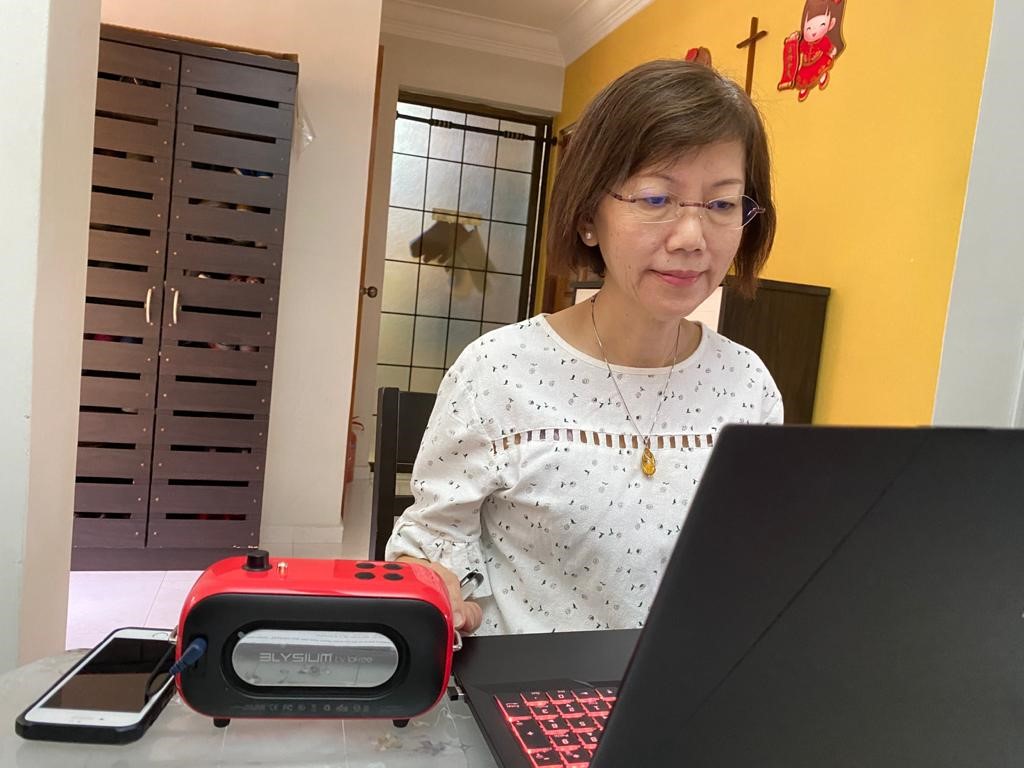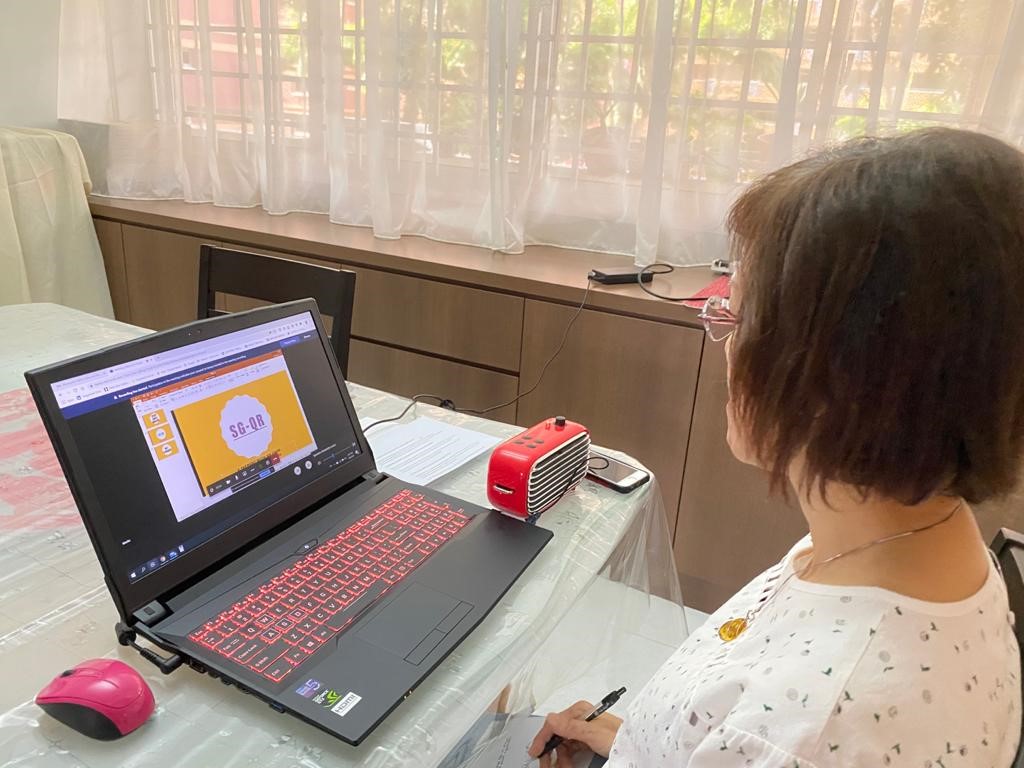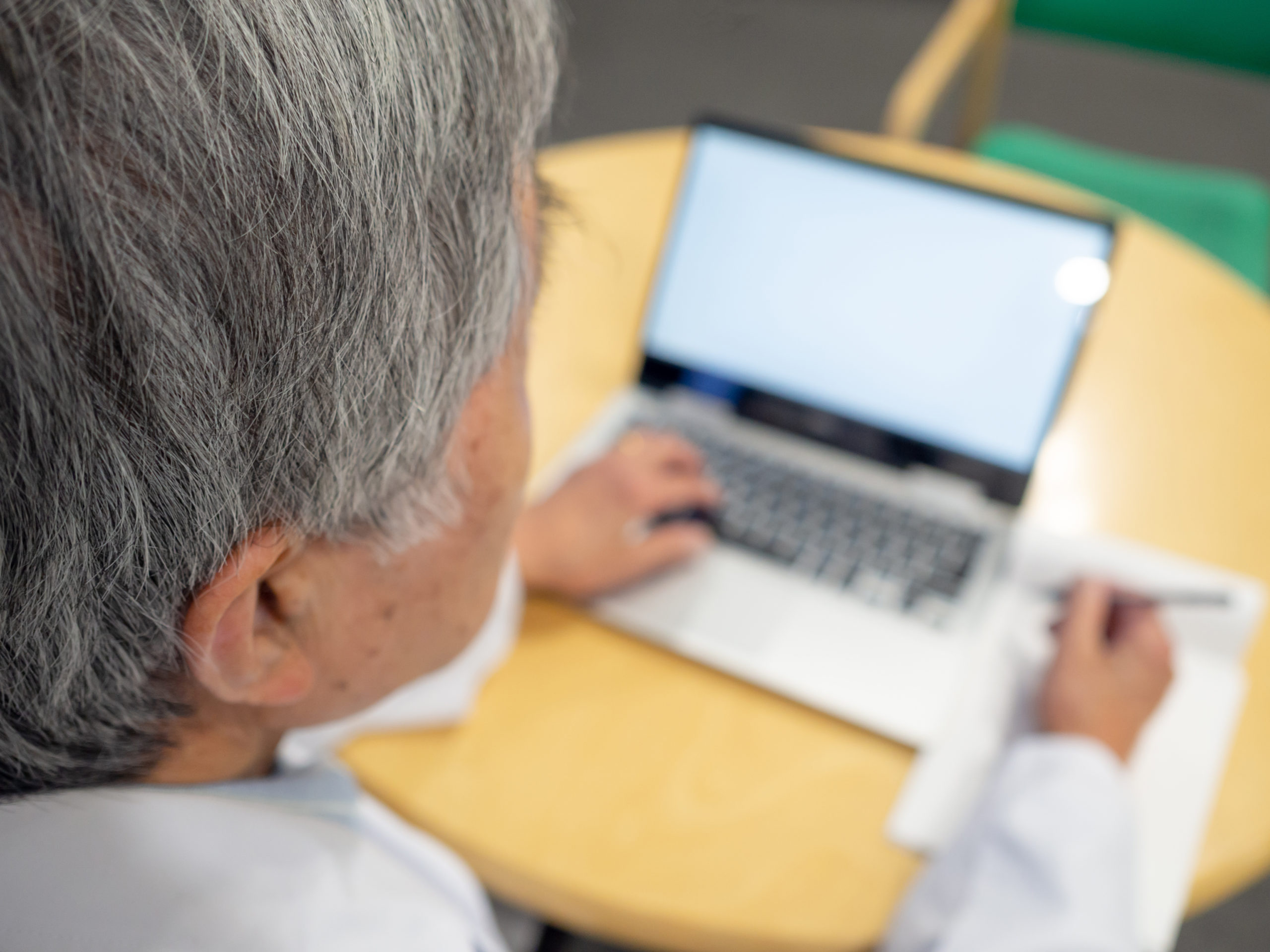A volunteer program in Singapore builds a digital bridge for older citizens amid COVID-19 isolation
Many of us who are staying at home during the COVID-19 pandemic are coping with the help of technology, like video conferencing apps to keep connected and streaming services to pass the time.
Ensuring senior citizens are connected is vital. Singapore is one of the fastest ageing societies in the world. About 560,000 people aged 65 and over make up about one fifth of the total population, according to statistics from 2019.
Offering seniors a helping hand
To bridge this technology gap, Singapore’s Infocomm Media Development Authority (IMDA) and its corporate partners Microsoft, Cognizant, and Grab, have launched Virtual Digital Clinics as part of its digital inclusion efforts. It is a program that helps seniors to get advice from volunteers and to access essential digital services from home.
Registering is easy: All a participant needs is an email address to register through the IMDA portal powered by Microsoft Bookings, as well as an internet-enabled device installed with the Microsoft Teams app.
Around 63% of seniors who are participating say installing, learning about, and using Teams was a simple process for them. It has also proved effective as real-time personal interaction is crucial to the clinics’ project’s success.

Friendly faces
Participants can ask questions and get answers from advisers – known as “Volunteer Digital Doctors” – who are skills-based employee volunteers of the program’s corporate sponsors. Maimunah Sood has only good things to say about her Volunteer Digital Doctor. “The person who was attached to me was very patient and friendly, which made the session an enjoyable moment.”
Another participant, Sally Ang, shared a similar sentiment, “The volunteers are excellent, very clear in guiding and easy to understand.”
During the circuit breaker it was vital for Ms Ang to learn how to complete cashless payments and stay connected to friends and family. “I cannot imagine what it would be like today without the digital services available. Keeping up with technology allows me to stay engaged and connected with my community,” she says.
For 70-year old Catherine Teo understanding digital technology means staying connected in unpredictable times. “I don’t want to feel left out when it comes to technology,” she says. “It’s especially important in times like this to expand your knowledge and skills.”
When the digital check-in system SafeEntry was initially introduced Ms Teo found the scanning process challenging. She had to check in via her NRIC, slowing down the process. This changed after her Virtual Digital Clinic.
“I’m now able to scan with my mobile and it makes checking in a lot easier,” she explains.
Rising to the occasion
Wanting to do his part during the COVID-19 pandemic, Chris Lim, an Operations Program Manager at Microsoft, signed up as a Volunteer Digital Doctor “to make an impact in the local community and contribute to society.”
He adds, “Volunteering also gives me a sense of purpose to serve seniors and help them stay connected with loved ones.”
Chris was hesitant at first as he thought face-to-face interactions would have been a better option to help seniors. But he soon realized it was easy to guide the participants virtually.
“Having volunteered over several virtual digital clinics, I got to realize how convenient it is for seniors to book slots online and join sessions from the comfort of their homes,” he says.
It is also easy for volunteers to access “micro-volunteering opportunities during the week.”
But according to Chris, being a volunteer isn’t all plain sailing. Seniors’ digital readiness and interests are very diverse, and some seniors ask questions that can stump the Digital Doctors. “Volunteers are invested in doing instant online research by checking in with other volunteers in the group chat and guiding them via video conferencing. It’s almost transparent to the seniors.”

The payoff
As seniors have a much higher risk of developing health complications, the Virtual Digital Clinics are also potentially lifesaving. The IMDA says the elderly can learn “digital skills and knowledge so they can tap on digital services to stay engaged, connected, and productive” safely in their homes.
While the older generation has slowly embraced smartphones and technology, overcoming language barriers also poses challenges. Most applications are only available in English, and some seniors face difficulties retaining the knowledge they have acquired.
To better meet the needs of the elderly, the Virtual Digital Clinics are now available in English, Mandarin, Malay, and Tamil – the four official languages of Singapore.
Ultimately, the IMDA hopes that senior citizens will gain the confidence to use technology to “help them stay updated with the latest COVID-19 news and information and perform daily activities from home, such as buying groceries online or making a video call with their family.”
So far, about 270 seniors have benefited from the Virtual Digital Clinics and IMDA expects to reach even more seniors through the next year.

